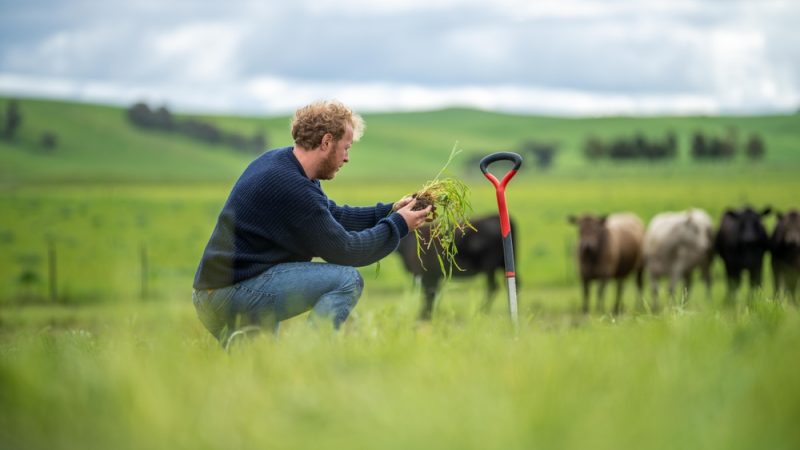Tags
EU off track to meet 25% organic target by 2030, study warns

The aim to have at least 25% of the EU’s agricultural land under organic farming – which produces food using natural substances and processes – was key in the EU’s flagship Farm to Fork food policy. [SHUTTERSTOCK/William Edge]
The EU is “very unlikely” to meet its target of 25% organic agriculture for 2030, as it would take almost double the current rate of progress to reach the goal, according to the European Environment Agency (EEA).
The EEA’s latest report, published on Monday (18 December), found that the bloc is not on track to meet most of the environmental targets set by the European Commission for 2023, including its ambitions for organic farming.
“It is very unlikely that the 2030 target will be met because of the large distance to the target,” reads the report, adding that the share of organic farming in the EU is expected to increase but “not sufficiently”.
The aim to have at least 25% of the EU’s agricultural land under organic farming – which produces food using natural substances and processes – is a key element of the EU’s flagship Farm to Fork Strategy.
However, the report found that current policy support is insufficient to reach the target and called for greater ambition to support “a fundamental transformation of food production and consumption”.
The EEA highlighted in its report the environmental benefits of organic farming, particularly for biodiversity, soil health, and water quality.
“[Organic farming] is a key policy tool to make European agriculture more sustainable,” Eric Gall, deputy director of the EU organic farming association IFOAM, told Euractiv, adding that member states should make more money available to organic farmers through the Common Agricultural Policy (CAP).
Originally, all this was part of the ambition of the EU’s plans: In its 2021 Organic Action Plan, the Commission set out to stimulate both demand and supply of organic products, and mobilise more financial support for organic farming through the CAP.
Since then, however, several of the EU executive’s promises on the “fork”, that is, consumption, side of the food chain, failed to materialise, with the sustainable food systems law one of the most notable absences from the Commission’s work programme for 2024.
Not doing well enough
According to the report, organic farming in the EU has been growing steadily since 2012, going up from 5.9% of the agricultural land to 9.9% in 2021.
If the current rate of growth is maintained, this would lead to a 15% share of organic farming in 2030, which would fall short of the Commission’s ambitions.
Furthermore, to reach the 25% target by 2030, the pace of progress would have to almost double in the remaining years.
“The annual (…) growth rate between 2012 and 2021 was 6%. Meeting the 25% target by 2030 would require a nearly doubled annual (…) growth rate of 10.8% for the 2021 to 2030 period,” the report said.
Disparities between countries
The report showed that the share of agricultural area under organic farming has increased in all EU member states – except Poland – between 2012 and 2021.
Meanwhile, differences among countries remain high. While Austria, Estonia, and Sweden had more than 20% of their agricultural area used for organic farming in 2021, the rate in six member states was still less than 5%, with the lowest shares found in Ireland, Bulgaria, and Malta.
Last year, Germany’s coalition government went one step further and agreed that organic farming should account for 30% of arable land by 2030, surpassing the EU-wide target.
[Edited by Julia Dahm/Zoran Radosavljevic]
https://www.euractiv.com/section/agriculture-food/news/eu-off-track-to-meet-25-organic-target-by-2030-study-warns/Published Date: December 18, 2023







